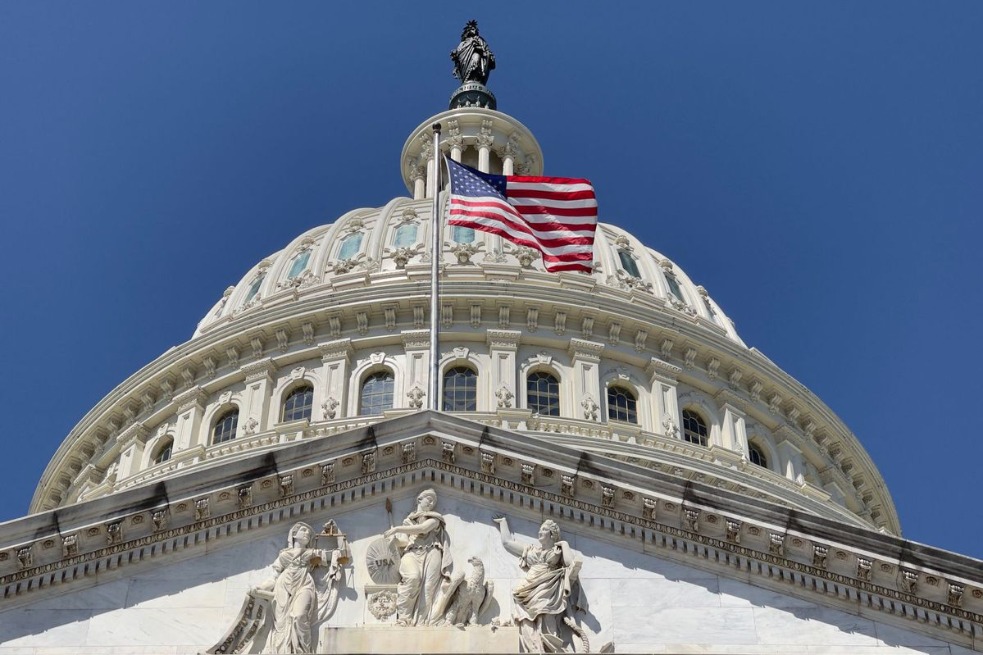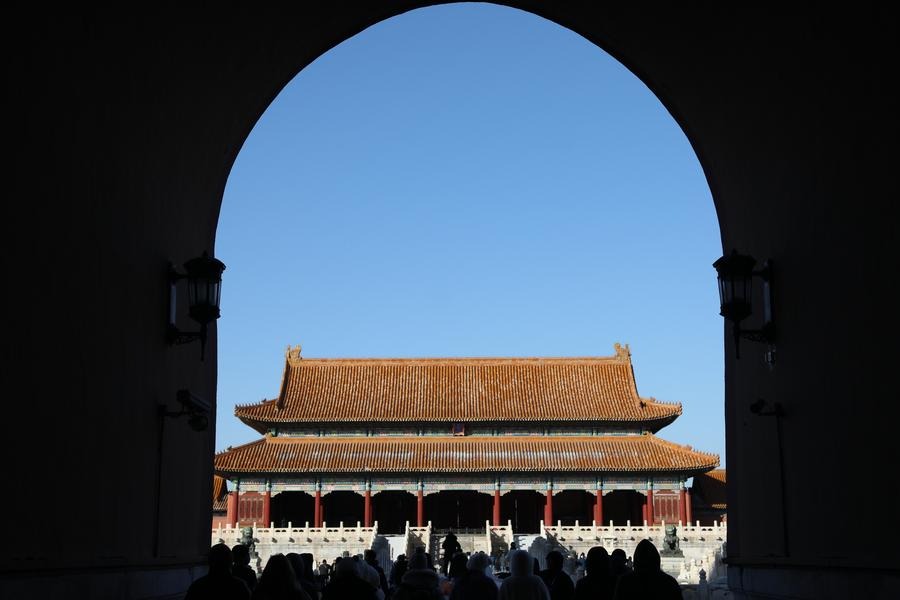Making prevention plans imperative
Prolonged ultra-low interest rates have complex effects on the economy and society and present many challenges


Low interest rates have been prevalent worldwide since the end of the last century. But the 2008 global financial crisis triggered by the United States brought the world into a period of ultra-low interest rates, followed by Denmark setting the first negative interest rate in 2012. On Nov 6, 2020, the US Federal Reserve once again announced its decision to keep interest rates unchanged at 0-0.25 percent, which indicates a continuation of the ultra-low rates regime.
Businesses naturally benefit from ultra-low rates regime because loans become more available and less costly, and they are more likely to obtain loans and roll-overs. However, with pro-business policies in place, commercial banks are likely to fund the wrong companies by rolling over loans to risky zombie companies with poor profitability.
If there is no increase in income, ultra-low rates regime dampens the enthusiasm of residents to spend and encourages precautionary saving. On the investment side, residents prefer high-yield and high-risk investments, such as private equity funds. They will also tilt toward more personalized financial assets.
The stock market gains an upward momentum because of the continuous supply of easy money. However, as the downward trend of the economy continues, listed companies tend to have poorer profitability, which may lead to a stock market bubble.
Fixed-income products have a lower rate of return due to ultra-low rates regime, making them less attractive as a kind of financial products. Non-bank financial institutions, such as life insurance companies, pension funds and money market funds, which mainly invest in fixed-income products (such as government bonds) will be negatively affected. They will gradually reduce their holdings of fixed-income products and seek riskier investments to increase the value of their portfolios.
Ultra-low rates regime also affects government departments in a profound way. In the short term, they may induce excessive expansion of government debt, causing new financial risks. In the long run, market investors will jointly push up the risk premium of sovereign debt, which in turn restricts the expansion of government debt. It is worth noting that lengthy ultra-low rates regime may fundamentally change the logic of government debt financing.
Negative rates render monetary policy less effective, weaken the independence of central banks and increase the risk exposure of central banks' balance sheets. Central banks need to strike a tough balance between reducing the government debt burden and future inflation, and between supporting government debt financing and maintaining independence.
Ultra-low rates regime is not conducive to financial stability. To be specific, financial intermediaries become more risk-taking and the leverage ratios of non-financial companies continue to rise. Persistent negative rates will change the central banks' monetary policy environment and might shift the policy inclination from being counter-cyclical to being pro-cyclical as the outcome de facto, thus exacerbating financial instability.
The impact of ultra-low rates regime on China should be considered from three aspects. First, chronically ultra-low and negative rates have worsened China's international economic environment, especially the financial environment, which will have a negative impact on China in many ways.
Second, with its interest rates remaining positive, China is still the only country that maintains a normal monetary policy structure, where the spread attracts arbitrage and leads to a strong renminbi and capital inflow. The bright side is that it injects vitality into China's capital markets and promotes the internationalization of the renminbi. The downside is that it may lead to domestic financial volatilities, which will test China's management capabilities.
Third, China still maintains a relatively high interest rate. However, as the downward trend of the economy continues and the COVID-19 pandemic lingers on, the downward pressure on interest rates will be greater than the upward pressure in the medium term. If so, China's commercial banks, which primarily depend on interest margins for survival, will be considerably affected and China will come under great pressure to restructure its financial sector.
China must be alert to the ultra-low rates regime, and make plans to cover all bases, among which there are four top priorities:
First, when shifting to the new dual circulation development paradigm, China in its monetary policy should aim at internal equilibrium rather than vying with developed countries or imitating their policies, and should not maintain an external equilibrium (at exchange rate) at the cost of its internal equilibrium. At the same time, with the global economy still in a downturn, China should focus on economic growth in the medium-and long-term, use rate cuts with caution, and make more use of structural policy tools.
Second, cross-border capital flows should be effectively monitored, and financial markets should be opened to foreign capital in an orderly fashion. It is advisable to extend the subscription period and properly control the rates to effectively regulate the speed and volume of foreign capital entering China's debt market to ensure domestic financial security.
Third, China should continue to deepen structural reforms on the supply side; follow closely changes in the domestic population growth rate, capital/labor ratio, total factor productivity and other core factors that affect real interest rates; slow down the decline of the working-age population through policies such as delaying retirement age and encouraging childbirth; better match funding with businesses, and speed up the application of technological innovations, so as to improve total factor productivity and reverse or mitigate the declining natural rate of interest.
Fourth, it should accelerate domestic financial reforms. It is necessary to accelerate the transformation of commercial banks, make them less dependent on interest margins and steadily push commercial banks in the direction of universal banking. Reform of pension institutions should also be advanced and the adoption of variable interest rates, variable liabilities and variable annuities in individual accounts should be considered. Non-bank financial intermediaries should be included in comprehensive financial statistics and macro-control work to better identify China's financial cycles and their disturbance to interest rates, thus making interest rate control more efficient.
The author is a member of the Chinese Academy of Social Sciences and chairman at the National Institution for Finance & Development. The author contributed this article to China Watch, a think tank powered by China Daily. The views do not necessarily reflect those of China Daily.


































